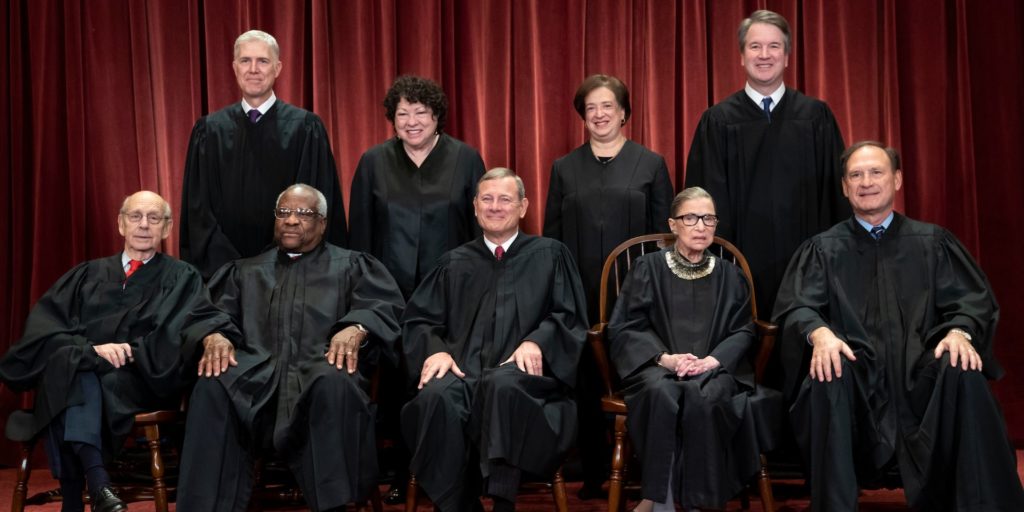
The U.S. Supreme Court has agreed to take three high-profile cases involving LGBTQ workplace protections.
The Washington Post reports: “The court accepted three cases for the term that begins in October. They include a transgender funeral home director who won her case after being fired; a gay skydiving instructor who successfully challenged his dismissal; and a social worker who was unable to convince a court that he was unlawfully terminated because of his sexual orientation.The cases shared a common theme: whether Title VII of the Civil Rights Act of 1964, which forbids discrimination on the basis of sex, is broad enough to encompass discrimination based on gender identity or sexual orientation.”
The National Law Journal reports: “The cases, closely watched by employers, consumers, civil rights groups, conservative and religious organizations, will draw the high court back into the culture wars amid the 2020 presidential election year. The justices will hear arguments next term in the cases Altitude Express v. Zarda from the U.S. Court of Appeals for the Second Circuit, Bostock v. Clayton County from the Eleventh Circuit and R.G. & G.R. Harris Funeral Homes v. Equal Employment Opportunity Commission from the Sixth Circuit. … The Zarda and Bostock cases ask the justices whether “because of sex” includes an individual's sexual orientation. The Second Circuit said it does; the Eleventh Circuit disagreed with that conclusion.”
Another case SCOTUS agreed to take up was R.G. & G.R. Harris Funeral Homes Inc. v. Equal Employment Opportunity Commission.
The ACLU on that case: “Aimee Stephens had worked for nearly six years as a funeral director at R.G. and G.R. Harris Funeral Homes when she informed the funeral home's owner that she is a transgender woman. Her employer fired her, and the EEOC sued on her behalf. The Sixth Circuit Court of Appeals ruled that Aimee's employer engaged in unlawful sex discrimination when it fired her because she's transgender. R.G. & G.R. Harris Funeral Homes is asking the Supreme Court to review the case. The ACLU represents Aimee Stephens.”
The cases will be argued this fall.



